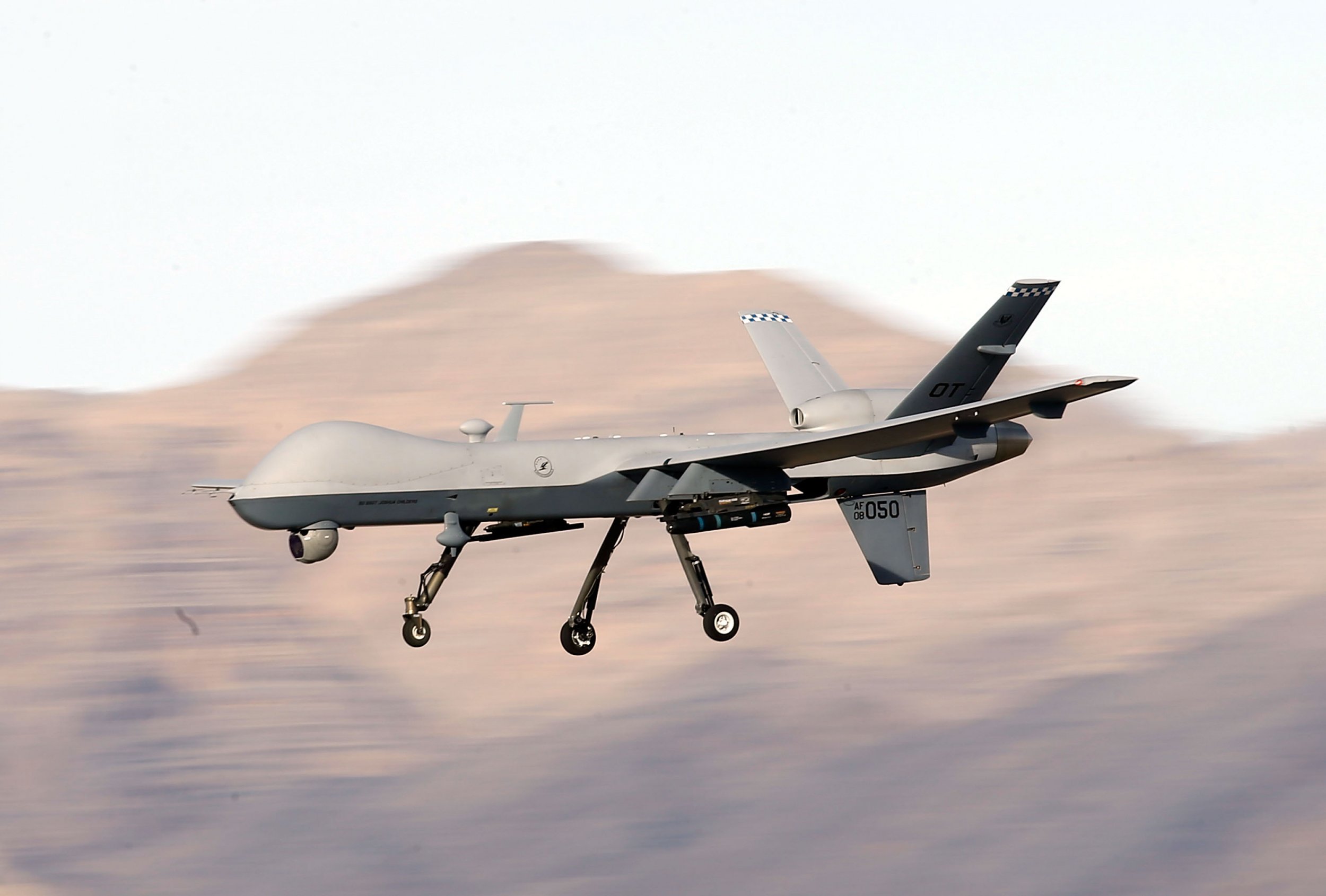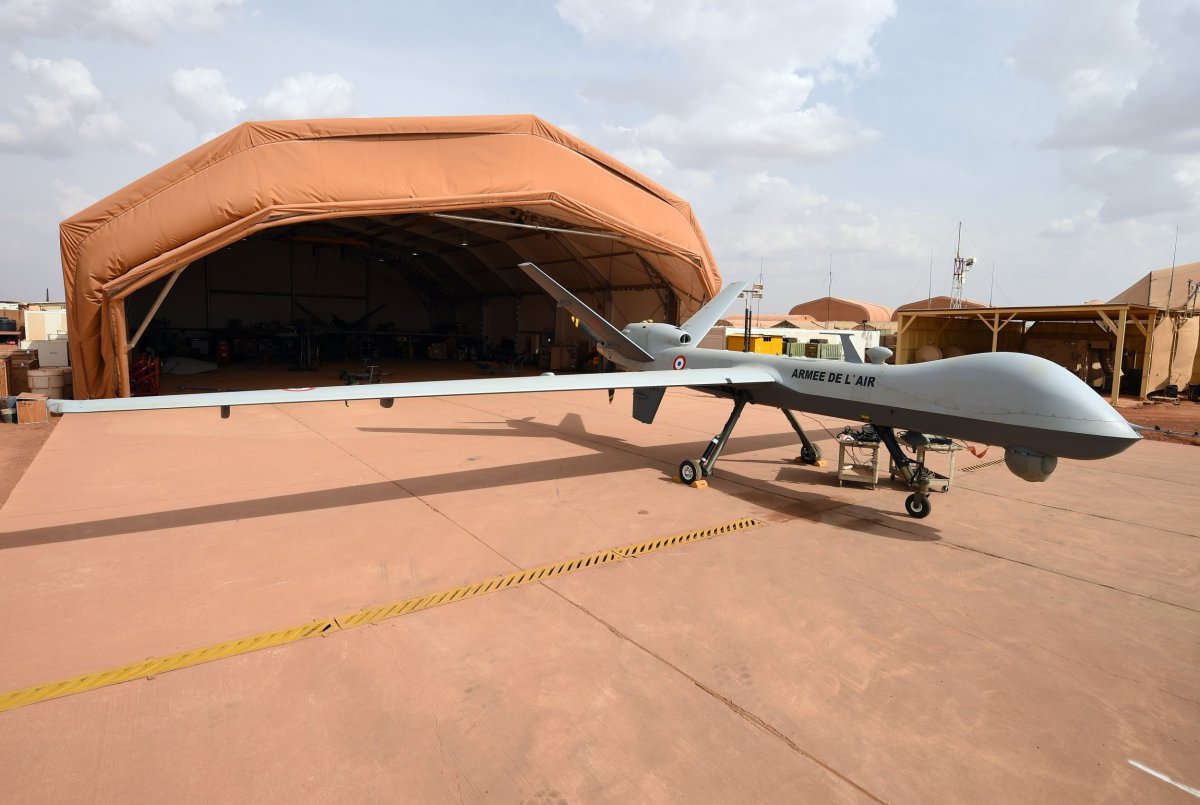
UPDATED--The defense minister of Niger has asked the U.S. military to start using armed drones to target militants operating along its border with Mali, which would represent a major expansion of America's use of lethal drone strikes.
This request comes as the Pentagon continues to investigate an ambush on October 4 that killed four U.S. special forces soldiers in Niger and struggles to complete the construction of a $100 million drone base in the city of Agadez near the center of the country.
"I asked them some weeks ago to arm them [the drones] and use them as needed," Defense Minister Kalla Moutari told Reuters. When asked if the Trump administration had approved this request, Moutari said, "Our enemies will find out."
But multiple U.S. officials recently told NBC News the White House is indeed moving toward using armed drones in the African nation.
Samantha Reho, a spokeswoman for AFRICOM, would not confirm to Newsweek whether the military was indeed discussing arming its drones in Niger. "The arming of any aircraft, including remotely piloted aircraft, is done with the approval of and upon coordination with the host nation," she said.

The introduction of lethal drone strikes in Niger could further complicate America's role there as the U.S. government continues to face questions about the deadly ambush, which was believed to be perpetrated by a group known as ISIS in the Greater Sahara.
Many Americans, including top senators, were unaware the U.S. has such a significant presence in Niger prior to the deadly incident. The U.S. military currently has around 800 troops stationed in Niger and between 5,000 to 6,000 deployed across Africa on any given day, according to AFRICOM.
In addition to surveillance, drones have been used by the U.S. government to target and kill suspected militants in a number of countries. The U.S. has conducted drone strikes in places like Somalia and Libya, but expanding the lethal drone program to Niger would mark an entirely new chapter for American counterterrorism operations in Africa.
But Peter W. Singer, a fellow at the New America Foundation in Washington, D.C., and expert on 21st century warfare, told Newsweek he's "not deeply troubled" by the prospect of the U.S. conducting lethal drone strikes in Niger "in the wake of loss of U.S. troops and the fact that the defense minister there is supportive of it."
"It is an expansion, but not an expansion into a country where we weren't already nor without local government allowance, which are the two parts that get most problematic," Singer added.
Meanwhile, the U.S. is facing many obstacles as it attempts to complete the Agadez drone base. The construction has been delayed by a year, Stars and Stripes reported Wednesday, as those involved in the project struggle with the unforgiving conditions in the region.
"Logistics are the biggest challenges by far," Major Carsten Stahr, 724th Expeditionary Air Base Squadron director of operations said in a recent statement. "We're in the Sahel [the zone of transition in Africa between the Sahara to the north and the Sudanian Savanna to the south], so we deal with anything from daily temperatures over 100 degrees, long shipping times for supplies, little to no infrastructure nearby, malaria, etc."
If the U.S. military decides to use armed drones in Niger, they will likely be launched from the base.
Update: This article has been updated to include a comment from a spokeswoman for AFRICOM.
Uncommon Knowledge
Newsweek is committed to challenging conventional wisdom and finding connections in the search for common ground.
Newsweek is committed to challenging conventional wisdom and finding connections in the search for common ground.
About the writer
To read how Newsweek uses AI as a newsroom tool, Click here.








